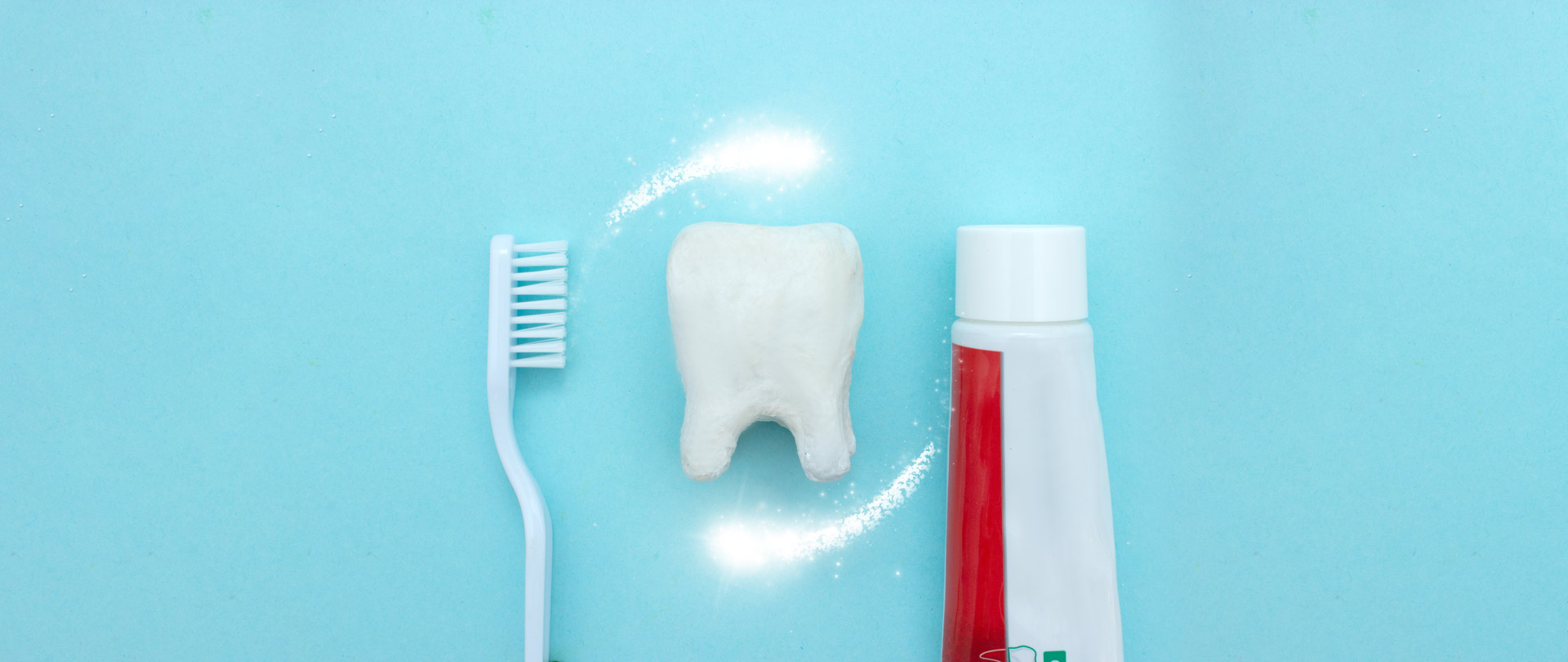Good oral health is an essential part of looking and feeling our best, ensuring we stay pain-free and have a smile that we are proud to show off. In this blog post, we explore why fluoride is a vital part of your brushing routine to prevent tooth decay and strengthen enamel.
What is fluoride?
You have probably noticed that fluoride is an added ingredient in your go-to toothpaste, but you may be surprised to learn that fluoride is a naturally occurring mineral found throughout nature, in water and in some foods. You might also have heard that fluoride is sometimes added to the UK’s water supply – but what are the benefits and why is fluoride good for teeth?
Why is fluoride good for teeth?
The benefits of fluoride for teeth were first discovered in the 1930s. Researchers compared children that grew up drinking fluoridated water with those that did not. For the children whose drinking water included fluoride, tooth decay was significantly less common. Studies since have continued to show that fluoride is effective in strengthening teeth and fighting cavities.
How it works
The bacteria on your teeth like to feed on sugars and carbohydrates, and when they do they produce an acidic saliva that can weaken your tooth’s enamel. Fluoride works to protect your teeth from this damage, also replenishing your teeth’s calcium and phosphate levels to ensure they stay strong, hard and protected against decay.
The benefits of fluoride for teeth work in two ways:
- Ingesting fluoride from food and drink allows the mineral to enter the bloodstream, aiding the development of teeth – which is especially important for children.
- Topical fluoride for teeth, such as toothpaste, adds fluoride to the saliva in order to control acidic damage and strengthen the tooth’s enamel.
What contains fluoride?
With so many clear benefits, it’s important to make sure your teeth are exposed to enough fluoride, to help protect them from tooth decay.
Fluoride in water
Since the discovery that fluoride in water can prevent tooth decay, the UK introduced a scheme to add fluoride to water supplies in some parts of the country. This works to supplement the water in areas where the supply does not naturally contain the 1mg of fluoride per litre found to reduce tooth decay.
Fluoride toothpaste
There is a huge range of toothpastes available on the market and most of them contain fluoride. However, you should pay close attention to the side of the tube and the amount of fluoride each one contains (measured in parts per million).
For children aged 3 to 6, dentists recommend using a toothpaste containing at least 1,000ppm fluoride. For children over 7 and adults, dentists recommend 1,350 to 1,500ppm fluoride.
For those at a higher risk of tooth decay, dentists may prescribe a toothpaste with higher levels of fluoride.

